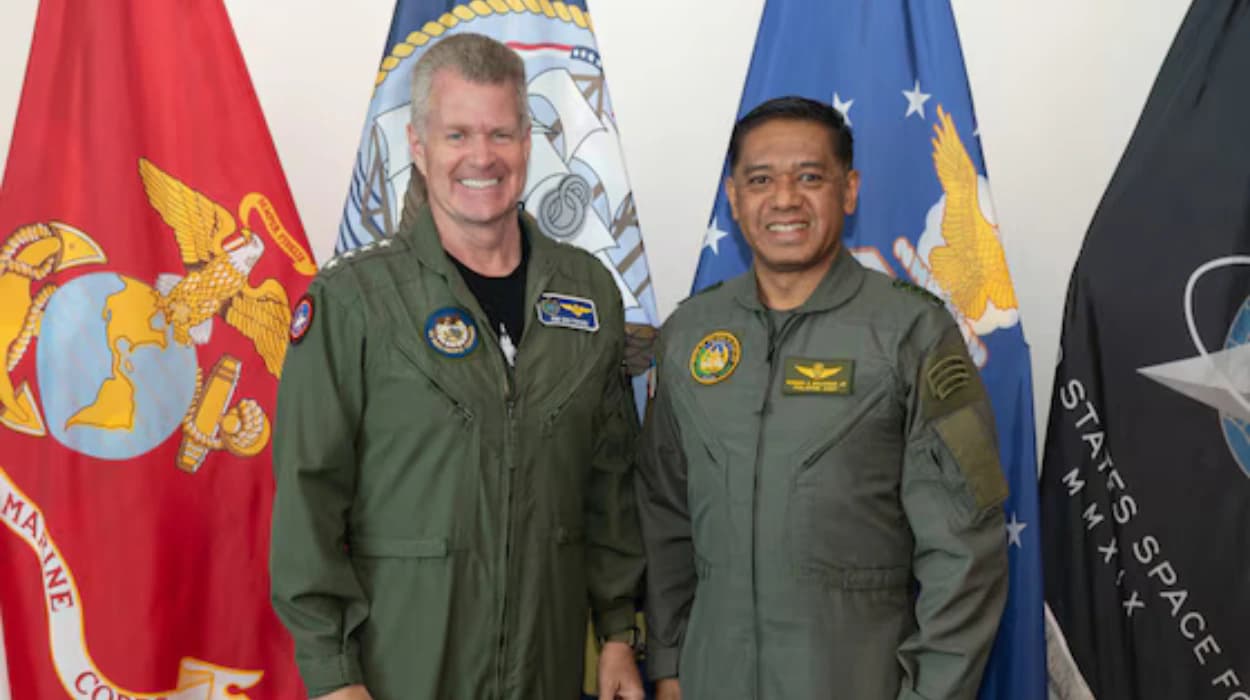In August 2025, the United States Indo-Pacific Command (USINDOPACOM) hosted the Armed Forces of the Philippines (AFP) for the annual meeting of the Mutual Defense Board and Security Engagement Board (MDB-SEB) at Camp Smith in Hawaii. This high-level bilateral event, held from August 7 to 8, reaffirmed the shared commitment between the two nations to deepen defense and security cooperation amid growing strategic challenges in the Indo-Pacific region.
The meeting was co-chaired by USINDOPACOM Commander Admiral Samuel J. Paparo and AFP Chief of Staff General Romeo Brawner, symbolizing the ongoing partnership and mutual trust that has been fostered through decades of alliance underpinned by the 1951 Mutual Defense Treaty. The boards approved a sweeping agenda of cooperative military activities designed to enhance operational readiness, interoperability, and deterrence in an increasingly complex security environment.
A Robust Agenda: Over 500 Joint Engagements Approved
The scale of the collaboration between the US and Philippine militaries was emphasized by the approval of more than 500 joint engagements for the upcoming year. These activities range from large-scale joint military exercises to smaller, subject matter expert exchanges involving various branches and specialties.
Among the key approved initiatives is the continuation of Exercise Balikatan 2026, the premier annual US-Philippines military exercise focusing on improving combined defense capabilities. Reflecting on the volume and diversity of cooperative endeavors, USINDOPACOM stated that these engagements are meant to "foster sustained interaction between both militaries and enhance operational readiness."
Admiral Paparo and General Brawner’s signing of the annual 8-Star memo and activities list formally ratified this comprehensive plan. The memo provides guidance and strategic coordination for numerous collaborative efforts, ensuring both forces remain prepared to counter emerging threats and respond effectively to natural disasters or other contingencies.
Maritime Cooperation as a Pillar of Regional Stability
A highlight of the discussions was the emphasis on bilateral and multilateral Maritime Cooperative Activities (MCAs). Given the Philippines' strategic location in the South China Sea and the Indo-Pacific's broader maritime expanse, maintaining freedom of navigation and securing critical sea lanes are mutual priorities.
USINDOPACOM underscored that "maritime cooperative activities are essential in ensuring freedom of navigation and improving interoperability," echoing concerns over regional territorial disputes and challenges to maritime sovereignty. These activities also enable joint patrols, intelligence sharing, and capacity building among maritime forces, contributing to deterrence against potential aggression.
General Brawner highlighted the importance of these operations for national and regional security, expressing confidence that continued maritime cooperation would bolster the Philippines' defense capabilities and support a rules-based order in the Indo-Pacific.
Renewing Shared Commitment Under the Mutual Defense Treaty
At the core of the MDB-SEB meeting was the reaffirmation of the 1951 Mutual Defense Treaty between the United States and the Philippines. This treaty remains a foundational legal framework, compelling both countries to come to each other's defense in the event of an armed attack in the Pacific.
The Mutual Defense Board, established in 1958, and the Security Engagement Board, created in 2006, collectively provide the institutional mechanisms to manage and coordinate bilateral defense relations. The annual MDB-SEB sessions ensure that both nations keep pace with evolving strategic challenges by adapting their cooperative activities and planning to current threats.
USINDOPACOM highlighted how the sustained military partnership serves to "enhance stability in the Indo-Pacific region by promoting security cooperation, encouraging peaceful development, responding to contingencies, deterring aggression, and, when necessary, prevailing in conflict."
Broader Strategic Context and Regional Significance
The US-Philippines alliance comes amid heightened tensions in the Indo-Pacific, particularly concerning an assertive China seeking to expand its military and economic influence. The Philippines, with its proximity to contested maritime zones, plays a vital role in regional security.
The strengthened military collaboration aligns with broader US efforts to sustain a free and open Indo-Pacific, reassuring regional allies and partners. This strategic alignment was further boosted by recent diplomatic meetings, including US Secretary of State Marco Rubio's engagement with Philippine President Ferdinand Marcos Jr. in Washington, which culminated in announcements of increased foreign assistance to support energy, economic, and maritime growth in the Philippines.
Such diplomatic and military integrations signal Washington's commitment to bolstering the Philippines’ capacity to navigate both traditional and non-traditional security challenges.
Enhancing Interoperability and Readiness
Efforts at the MDB-SEB focused strongly on improving interoperability—the ability of US and Philippine forces to operate seamlessly together across a range of domains and scenarios. This includes joint communication systems, coordinated training protocols, and shared operational doctrines.
The approved exercises and exchanges aim to build familiarity and trust among troops, sharpen joint command capabilities, and test combined responses to various contingencies such as humanitarian assistance, disaster relief, and regional security threats.
General Brawner remarked on the importance of mutual trust and collaboration, stating,
"Our shared commitment is reflected in the depth and breadth of activities planned. Together, we stand stronger against challenges to peace and stability."
Forward Planning and Next Steps
The conclusion of the 2025 MDB-SEB saw each USINDOPACOM service component hosting their Philippine counterparts to begin detailed planning for the execution of approved activities in 2026. This forward-looking approach ensures that joint engagements are timely, relevant, and aligned to both nations' strategic priorities.
Both militaries are poised to continue refining operational concepts, sharing intelligence, and enhancing their combined deterrence posture. The meeting underscored the importance of enduring alliances and partnerships as bulwarks against instability in a changing security landscape.
The 2025 Mutual Defense Board and Security Engagement Board meeting between USINDOPACOM and the Armed Forces of the Philippines reaffirmed a robust and evolving partnership anchored in mutual defense and regional stability. The approval of over 500 joint engagements, the emphasis on maritime cooperation, and the steadfast commitment to the Mutual Defense Treaty reflect the depth of this alliance.
In an era of complex Indo-Pacific security challenges, this continued collaboration between the United States and the Philippines plays a vital role in deterring aggression, enhancing interoperability, and promoting peace through strength.

